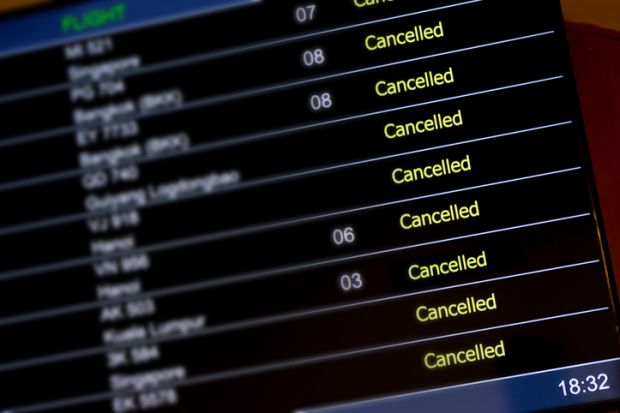International students are haemorrhaging money and opportunities as Australian universities rescind their enrolments amid a crackdown by immigration officials.
At least two universities have cancelled previously awarded certificates of enrolment, as grant rates for higher education visas plunged to their lowest level on record. Authorities rejected 21 per cent of the visa applications lodged from overseas in the second half of last year, with refusal rates reaching 37 per cent for applications from Pakistan, 39 per cent from India and 52 per cent from Nepal.
Agents say processing times are mounting for visas to study at some universities. Meanwhile, students enrolled with institutions deemed to have low immigration risk are receiving visas in a matter of days.
The government’s migration strategy, released in December, included a commitment to prioritise student visa applications based on institutions’ risk levels. “Higher risk providers will experience slower processing times,” it warned.
The warning appears to have come to pass for the 18 universities already rated medium or high risk, including eight capital city institutions and all but one regionally based university. The risk ratings are expected to be adjusted again in March or April, causing some universities to “panic”, according to the Association of Australian Education Representatives in India (AAERI).
“[They] feel that they need to get the visa [applications] withdrawn to avoid further refusals as these refusals will lead to higher risk level,” said AAERI president Nishi Borra.
Wollongong and La Trobe universities have retracted certificates of enrolment issued to students who ignored earlier requests to withdraw or defer their visa applications.
Universities have previously cancelled certificates because of under-enrolments, but this is thought to be the first time they have reneged on enrolment promises because of changes in government policy. According to an email published in The Koala International Education News, Wollongong told the affected students that they were “unlikely to meet the new criteria to obtain a positive visa outcome” following “substantial changes” to Australia’s migration strategy.
A Wollongong spokeswoman said the university was adjusting its admission and screening processes in line with “a normal approach across the Australian university sector”.
Mr Borra said universities were jumping the gun. He said that while the migration strategy had flagged more rigorous English language requirements and a new “genuine student” test, no details had been announced.
He said visas were being rejected not because of fraudulent or misleading applications, but because visa processors doubted the applicants’ intentions. Authorities were “using visa refusals to reduce the net student intake” without spelling out new requirements and judging applicants accordingly.
Mr Borra said that while universities that cancelled enrolment certificates were offering refunds, the students lost visa application fees of more than A$700 (£360) and up to A$800 in foreign exchange costs. “These students have opted for Australia over other destinations,” he said. “Refusal…leads to a loss of goodwill for Australia as a study destination.”
The immigration minister, Clare O’Neil, took credit for the surging visa rejections. “Our plan to get migration back down to sustainable levels is working,” she tweeted. “This is led by changes that are reducing exploitation and rorting [scamming] in higher education.”
The International Education Association of Australia criticised “teething problems” in the migration strategy’s implementation, with indications that “the visa approval pendulum has swung too much in favour of one group over another”.
Its chief executive, Phil Honeywood, said “country-specific issues” – including the reallocation of staff who processed Pakistani visa applications, and “concerns” about Nepal’s banking system – had complicated matters.
“Semester one is not looking very good for most education providers,” he said, adding that his association would be “strongly lobbying key government ministers to haul the situation back to some sort of equilibrium”.
Ravi Lochan Singh, managing director of the Global Reach education agency, said Australia’s risk ratings approach was like a “caste system” in a sector where all the universities were supposed to be “world class”, according to the government.
“[In] America…New Zealand or the United Kingdom, the visa policy remains the same irrespective of which university you go to,” he said. “There is no separate fast track.
“Our projections are getting derailed, not because we’ve had refusals [but] because the visas are taking so long. So many students are waiting for a decision.”
A La Trobe spokeswoman said her university was working with less than 0.4 per cent of its international student applicants “to review and revise their applications”.
Register to continue
Why register?
- Registration is free and only takes a moment
- Once registered, you can read 3 articles a month
- Sign up for our newsletter
Subscribe
Or subscribe for unlimited access to:
- Unlimited access to news, views, insights & reviews
- Digital editions
- Digital access to THE’s university and college rankings analysis
Already registered or a current subscriber? Login









